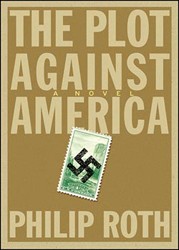Simon Axler, a distinguished American actor in his mid-sixties, has been deserted both by his fragile wife and by his defining talent: a magical on-stage assurance which had let him listen and respond within the dramatic moment. No tricks of craft can restore this authenticity, whose loss poses the contradictory humblings of revoked career and proffered modesty. Axler, feeling alone, inauthentic and suicidal, checks into a psychiatric hospital, where a month of pills, talk, and art workshops restores sleep. He is returned to his New England farmhouse and his unresolved predicament.
Enter Pegeen, a forty-year old lesbian and daughter of old friends, who is trying to recover from two painful involvements by moving in with him. Axler, uncomfortable with her butch look, lavishes on her a Prada makeover and soon enjoys a sexual liaison, which Pegeen guesses might last a year. Axler gets a run of thirteen months — and courts the illusion they might sojourn into marriage. Then as Pegeen’s lesbian impulses reassert themselves, he sustains her arousal first with fantasies of a threesome, and then by arranging the real thing, only to be exiled to bedside voyeurism as she inducts their recruit into lesbian sex. Still he secretly fantasizes a faithful Pegeen inspiring him to rejuvenate himself, resume his career, and father a child with her. He surreptitiously enrolls in a program of reproductive counseling, only to be jolted back to the abyss when Pegeen informs him the liaison is over. Fingering his old shotgun, he invokes curses on everyone in her life.
But Philip Roth’s novella provides its leading actor with no one to kill but himself. Fixated now on classic stage suicides and that shotgun, which Chekhov would insist must go off, Axler performs his final authenticating act. The brief note he leaves is the concluding speech of The Seagull: “The fact is, Konstantin Gavrilovich [Treplev] has shot himself.” Treplev, playwright “of no faith” or “calling,” coalesces with Axler, actor of no identified religion or assured vocation. By humbling this fellow sojourner of an existentialist world, Roth, who never reinvents himself, reifies a condition of that life — that its passport be continually revalidated.

Fiction
The Humbling
- Review
By
– November 10, 2011
Alan Cooper teaches English at York College, CUNY. Notable among his numerous contributions to periodicals, reviews, and books is his Philip Roth and the Jews (SUNY Press, 1996). His latest book is the young-adult novel Prince Paskudnyak and the Giant Bats.
Discussion Questions

Jewish literature inspires, enriches, and educates the community.
Help support the Jewish Book Council.

